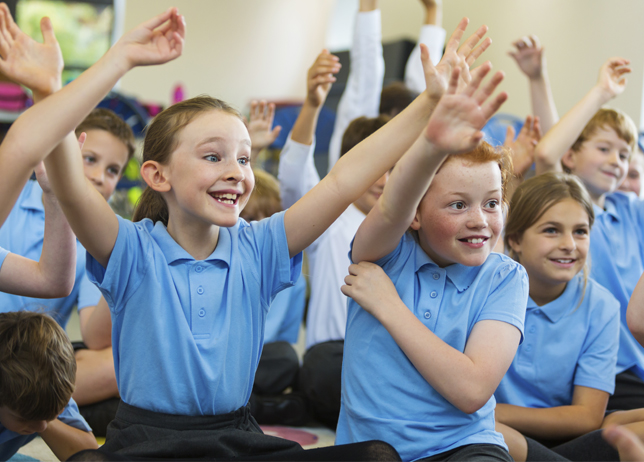How to prepare your child for primary school
Starting primary school is a major transition for children who are still in the early stages of developing social and cognitive skills.
It’s unsurprising that taking such a major step can overwhelm some children, and even parents.
But there are lots of simple, positive actions you can take as a parent to help prepare your child for primary school.
Improve your child’s independence
Once your child starts primary school, teachers will ask them to try to complete tasks independently.
Queensland’s Department of Education recommends parents should encourage children to do more activities independently.
That might include children putting their shoes on, packing, carrying and unpacking their bags from kinder or childcare, going to the toilet by themselves, and looking after their belongings.
It might help to reward your child each time they successfully do something on their own to help increase their self-confidence in a classroom environment.
Create a routine
A school day is well structured – children have dedicated times to learn, eat, play and rest.
Creating a similar routine for your child before they enter their first year will help them to better ease into a full school day.
If you’re regularly at home with your child, try to create blocks of time for them to do activities, set a consistent time for lunch and snacks, and give them a regular timeslot to rest.
If your child currently attends kinder or childcare, talk to their carers and facilitators about establishing a simple timetable for each day’s activities.
Help your child learn basic literacy and numeracy skills
University of Melbourne early childhood professor Dr Kay Margetts found in a 2008 study that Victorian Prep and Grade 1 students wanted to understand basic literacy and numeracy before they started school.
The Prep children surveyed in Dr Margetts’ study said it was most important that they knew how to write their own name and other basic words (35.3 per cent), while the Grade 1 children also ranked this highest (35.4 per cent).
Reading skills were ranked second highest by the Preps (22.1 per cent) and Grade 1 students (19 per cent), while understanding numbers and basic math came in third (14.7 per cent for Preps, 17.7 per cent for Grade 1s).
So, before your children start their first year of schooling, encourage them to learn the alphabet and how to count.
You might want to sing the alphabet with them while you’re bathing them, or put up a poster that shows letters and numbers in their room.
Ask them to write their own name on their artworks and reward them when they spell their name using the correct letters, and when they write each letter correctly.
You can also use car trips and other downtimes to encourage them to learn basic literacy and numeracy skills.
The more literacy and numeracy skills they know before they reach school, the more confident they will feel to answer their teacher’s questions when learning different topics.

Do the school shop with your kids
Yes, the school shop is time-consuming, and shopping with young children isn’t always an easy task.
But various studies suggest involving your children in key preparation tasks for school keeps them engaged with the idea of entering school, encourages positive association it, and also encourages your child to be independent.
Getting them to make decisions about which pencil case or lunchbox they would like allows them to express their personality, as well as encouraging positive decision-making (a skill they’ll need at school).
Get involved with your child’s new primary school
Simple things like walking around your child’s new school before starting there can help them to get used to the school’s environment.
You will be there for moral support, while they take in and interact with the number of children on campus, how other students move around the school, and how the students act (Obviously check first with your school’s administration that they’re happy for you to do this).
Before your child’s first day, ask their teacher about the best places for them to put their school bag, eat their lunch, where to play, and where they can meet you at the end of the day, or even where they will attend before-and-after-school services.
You can show your interest in your child’s school by volunteering for canteen support, excursion days or becoming a member of the school board.
It will encourage your child to also actively take part in school activities and will create a positive experience for them.
Enjoy watching your child learn new things at school
Watching your child enter primary school is such a great milestone for both of you to enjoy. When you see the great leaps they make learning new things, you’ll feel truly rewarded. There will be plenty of opportunities to celebrate their achievements.


 has the facebook
has the facebook



